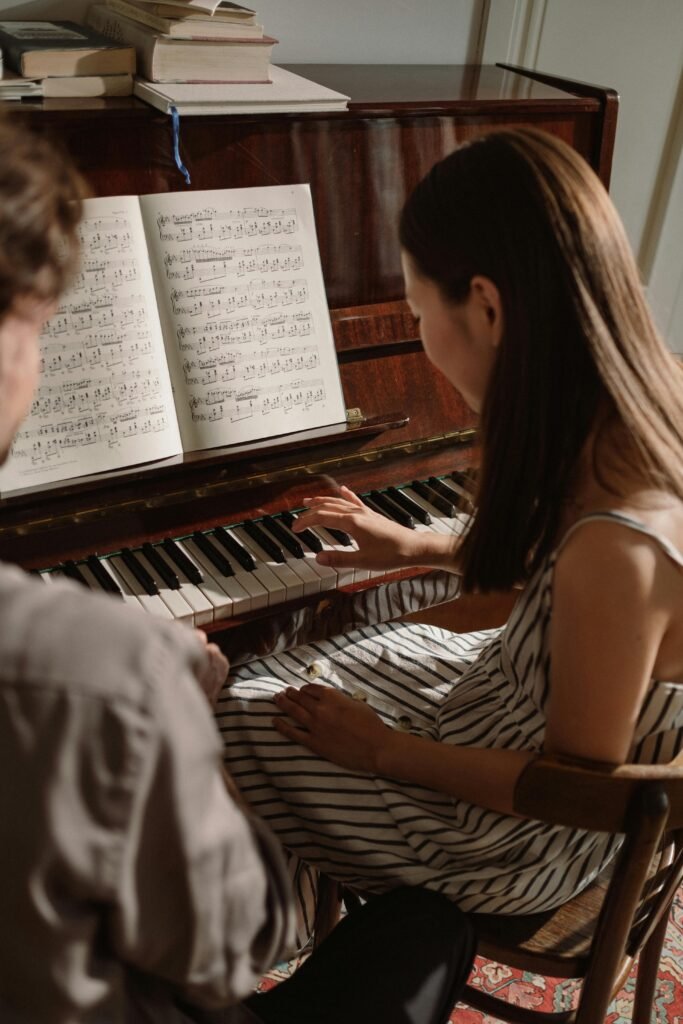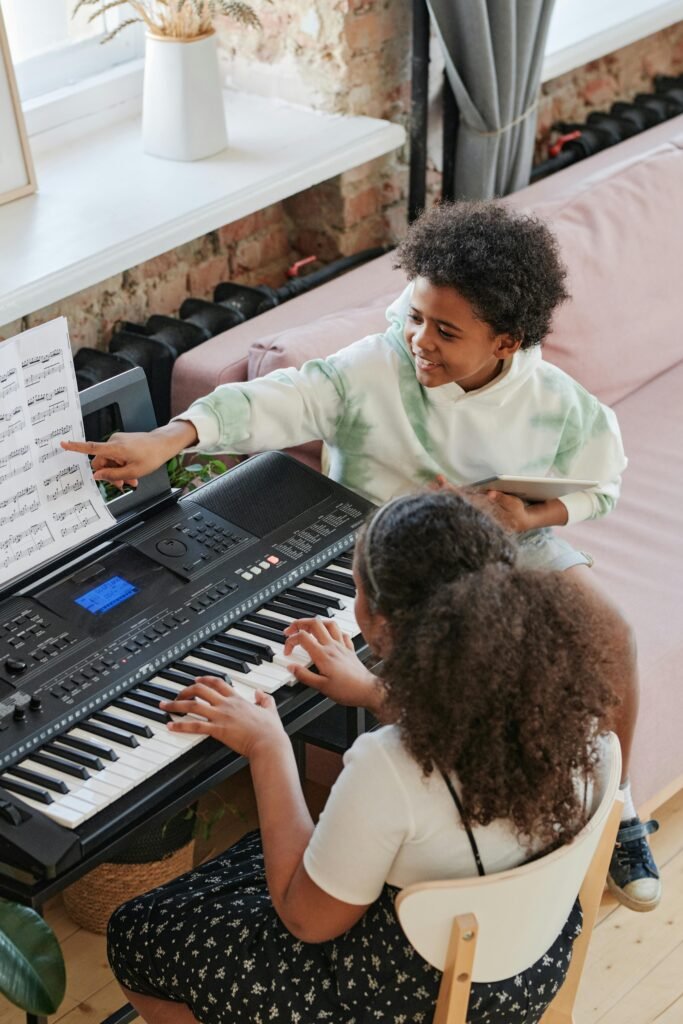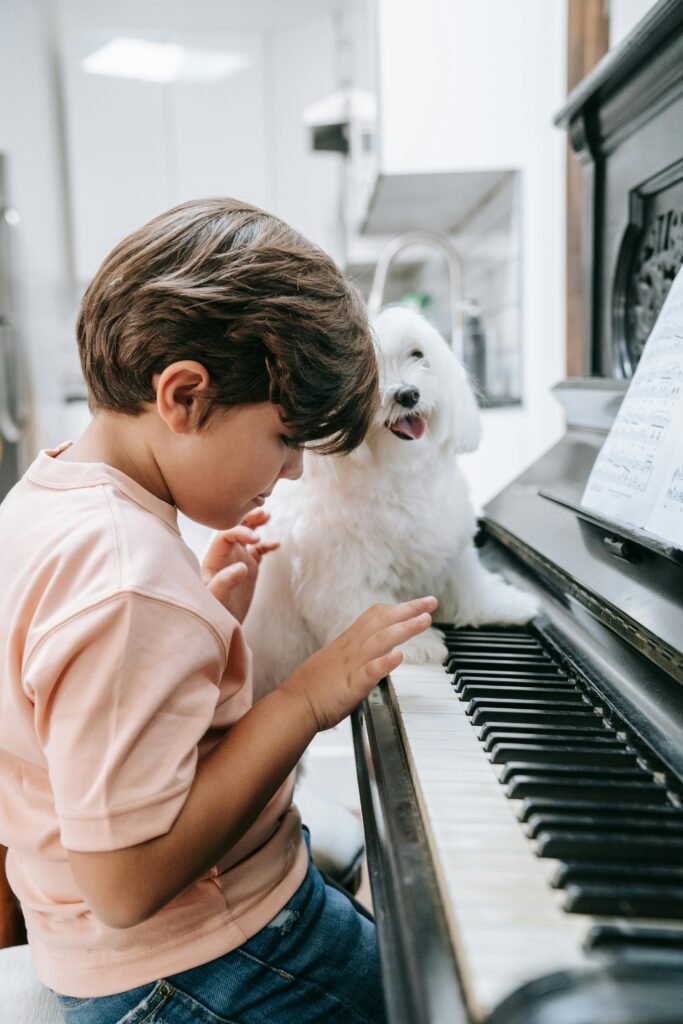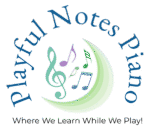Piano and Music Education
Music education is designed to help students realize their potential
Why Learn Piano to Further your Music Education?
Piano is good for your brain
Piano is great for the brain because it engages multiple areas simultaneously, promoting cognitive development, emotional well-being, and lifelong learning. Here’s how:
Boosts Memory and Concentration
Learning to read music and play with both hands strengthens working memory and attention span. Pianists process information quickly, improving multitasking and focus.
Enhances Problem-Solving and Critical Thinking
Music education, especially in piano, involves analyzing patterns, predicting outcomes, and adjusting techniques, which sharpens logical thinking and decision-making skills.
Promotes Discipline and Patience
Learning piano requires consistent practice, goal-setting, and perseverance, teaching valuable life skills that extend beyond music.
Improves Coordination and Motor Skills
Piano requires hand-eye coordination and fine motor control, as both hands move independently, strengthening neural connections between the brain’s hemispheres.
Encourages Emotional Expression and Reduces Stress
Music is a powerful emotional outlet, helping pianists process feelings, build emotional resilience, and reduce anxiety.
Increases Neuroplasticity and Cognitive Flexibility
Studies show that playing piano strengthens neural pathways, improving adaptability, creativity, and long-term cognitive health. This is why piano is so beneficial to older adults, as well as younger learners.
Piano Lesson Options
Schedule and tuition
30-Minute Piano Lessons*
30 minute lessons are a great jumping off point for young students and adults just getting started. It provides enough time to get through the basics of learning the piano each week, with occasional time spent on other musical skills like improvising, extra rhythm building and composing.
60-Minute Piano Lessons**
60 minute lessons are the perfect option for late beginners onward–the extra time allows us to explore more skills like improvisation, composing, rhythm building, sight reading, and expand knowledge of theory. It also allows for more time in-lesson to build up proper technique.
Now Enrolling for Fall 2025
Reserve your spot today! I also have a couple of openings left for this school year. Enroll now to get a jump start on lessons before Fall.
*Pre-K and Kindergarten Students do best with 30 minute lessons to start
**I recommend 60 minute lessons for students once they’ve moved into level 2 or higher




